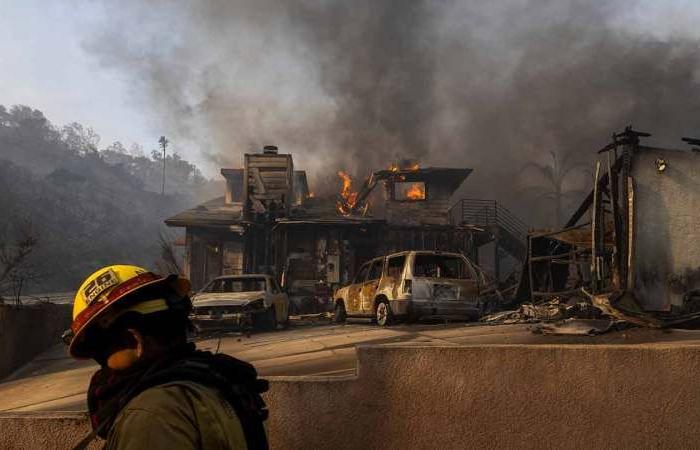People flock to nature's gateways and wildfire territories.
Homes built where human development meets undeveloped wildlands are particularly vulnerable to wildfires and other natural hazards (SN : 09/11/23). Nonetheless, people are turning to the Wilderness-Urban Interface, or WUI, and rapidly expanding it. From 2000 to 2020, the WUI's global footprint increased by about 35%, reaching a total area that is roughly the size of Mexico, researchers reported Nov. 8. Scientific advances.
The most pressing conflicts between humans and nature are concentrated in these areas, says geographer Jianghao Wang of the University of the Chinese Academy of Sciences in Beijing. Expanding the total area of the WUI “increases the likelihood of human exposure to wildfires, thereby posing greater threats to life and property.”
This risk has been fully manifested in recent weeks. For example, several wildfires have spread across WUI areas in Southern California. These include the ongoing mountain fire, which broke out in the Somis region on November 6 and has since destroyed more than 130 properties and forced more than 10,000 people to evacuate.
Using satellite data from 2000, 2010, and 2020, Wang and colleagues mapped the global spread of WUI at a resolution of 30 meters. They found that urbanization fueled a rapid expansion of WUIs that accelerated over time.
Starting from about 1.4 million square kilometers in 2000, the WUI increased by about 5 percent in the first decade and by about 30 percent in the next decade, reaching about 1.9 million square kilometers in 2020. The United States, eastern China and Nigeria saw some growth. the most extensive WUI growth. “This reality highlights the need for policymakers to prioritize fighting wildfires as more regions become vulnerable,” says Wang.
Subsequent analysis of satellite detections of wildfires found that fire activity near the WUI had also changed. The team looked at two time periods: 2008 to 2012 and 2018 to 2022. The number of small wildfires – those burning one square kilometer or less – increased by about 23% within a kilometer radius of areas WUI between these two periods.
The findings could help governments develop or refine policies and guidelines for managing wildfire risks, the researchers say (SN : 13/05/20). WUI residents are also advised to use caution when lighting fires in vegetated areas, lest they increase the danger to others living within these fire boundaries.






